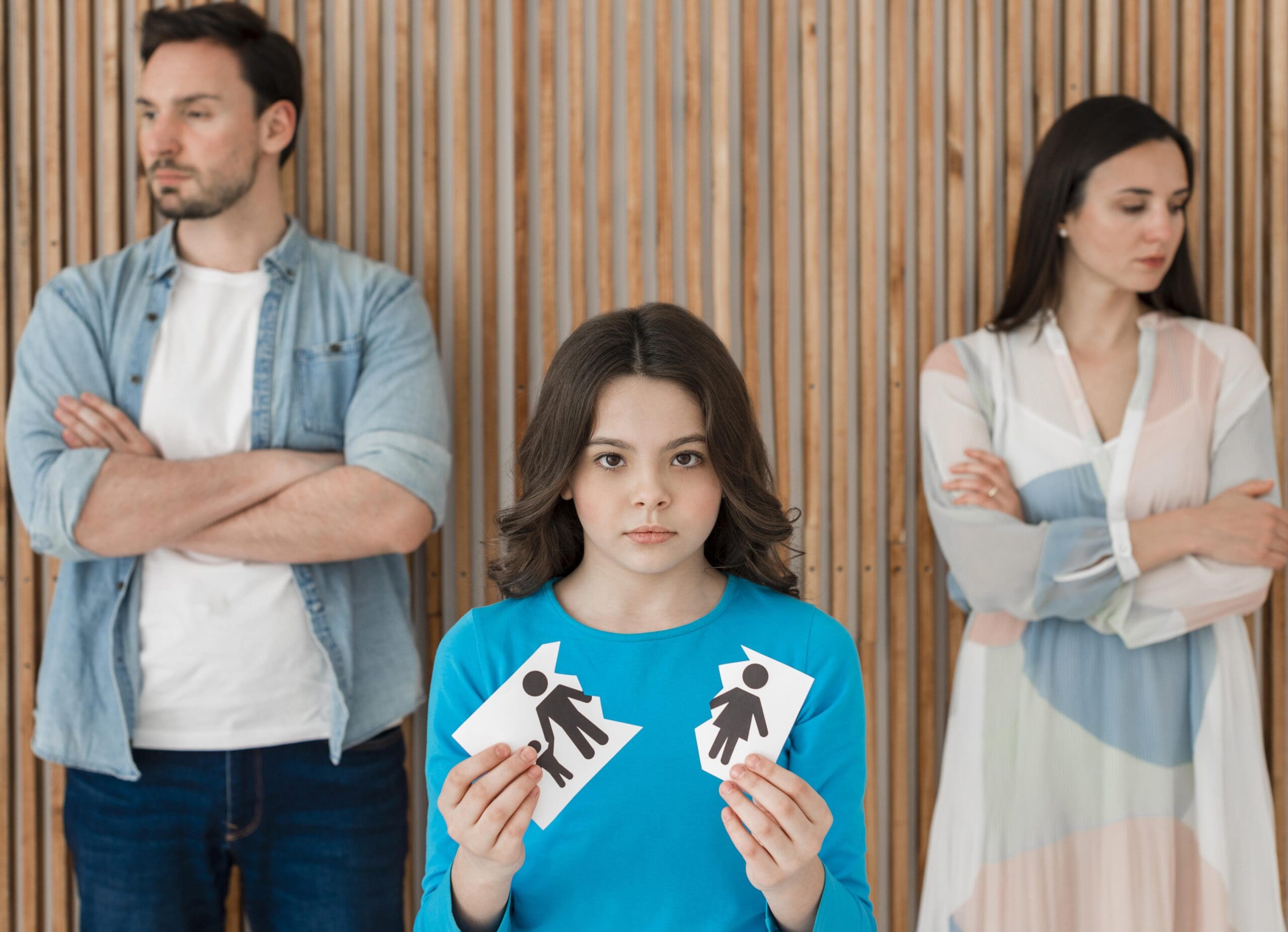Emotional consequences of divorce om young kids
Divorce can have significant emotional consequences for young children. The impact varies based on factors such as the child’s age, temperament, and the nature of the divorce. Here are some common emotional consequences that children may experience:
- Fear and Anxiety:Children may feel a sense of fear and insecurity about the changes happening in their family. The uncertainty of what the future holds can lead to anxiety and worry.
- Grief and Loss:Children may experience a sense of loss and grief, mourning the disruption of their family unit. This can be particularly challenging if they perceive the divorce as the loss of a parent or the loss of the family as they knew it.
- Confusion and Misunderstanding:Young children may struggle to comprehend the reasons behind the divorce. They might blame themselves or harbor misconceptions about their role in the separation.
- Anger and Resentment:Children may express anger toward their parents or the situation. They might feel betrayed, abandoned, or resentful, which can manifest in behavioral issues or defiance.
- Depression and Withdrawal:Some children may become withdrawn or exhibit signs of depression. They might isolate themselves from friends and family, and their academic performance may suffer.
- Adjustment Difficulties:Adapting to new living arrangements, school changes, and different routines can be challenging for children. It may take time for them to adjust to the new dynamics.
- Loyalty Conflicts:Children may feel torn between their parents, experiencing loyalty conflicts. They may worry about upsetting one parent or feel pressure to choose sides.
- Relationship Challenges:The experience of divorce can impact a child’s perception of relationships. They may struggle with trust and intimacy issues in their future relationships.
- Low Self-Esteem:Children may internalize the stress and tension from the divorce, leading to a diminished sense of self-worth. They may question their value or believe they are somehow responsible for the divorce.
- Long-Term Effects:While many children can adapt and thrive after divorce, some may carry the emotional consequences into adulthood. Issues such as difficulty forming healthy relationships, or a fear of commitment may persist.
It’s important for parents and caregivers to provide emotional support, open communication, and reassurance during and after a divorce. In some cases, professional counseling or therapy for the child and the family can be beneficial in helping them navigate the emotional challenges associated with divorce. Creating a stable, loving environment and maintaining consistent routines can also contribute to the child’s emotional well-being during this challenging time.
To book a 15-minute consultation and chat about your plan (where you are now, and where you want to be in the future), it’s easy—just click the buttons below.






